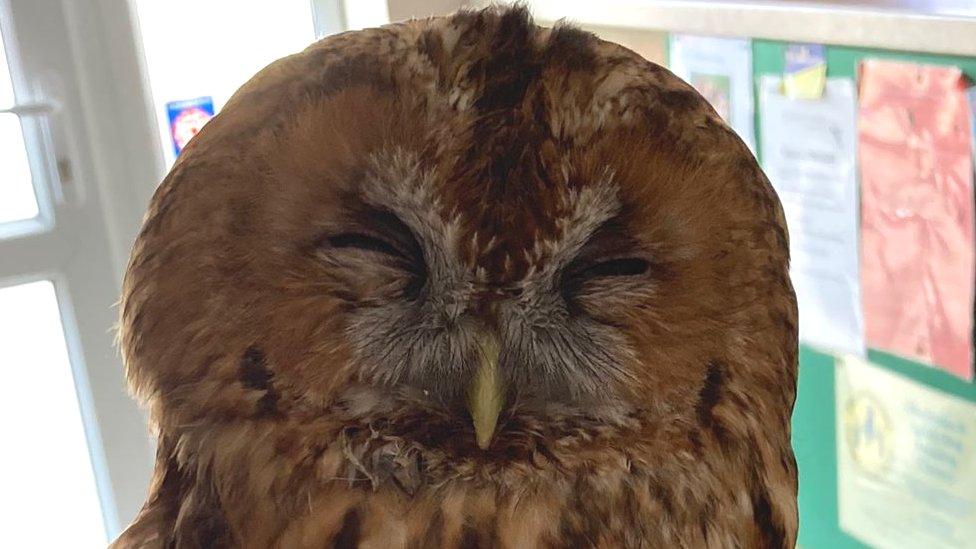Sparrowhawk hitches ride in couple's car
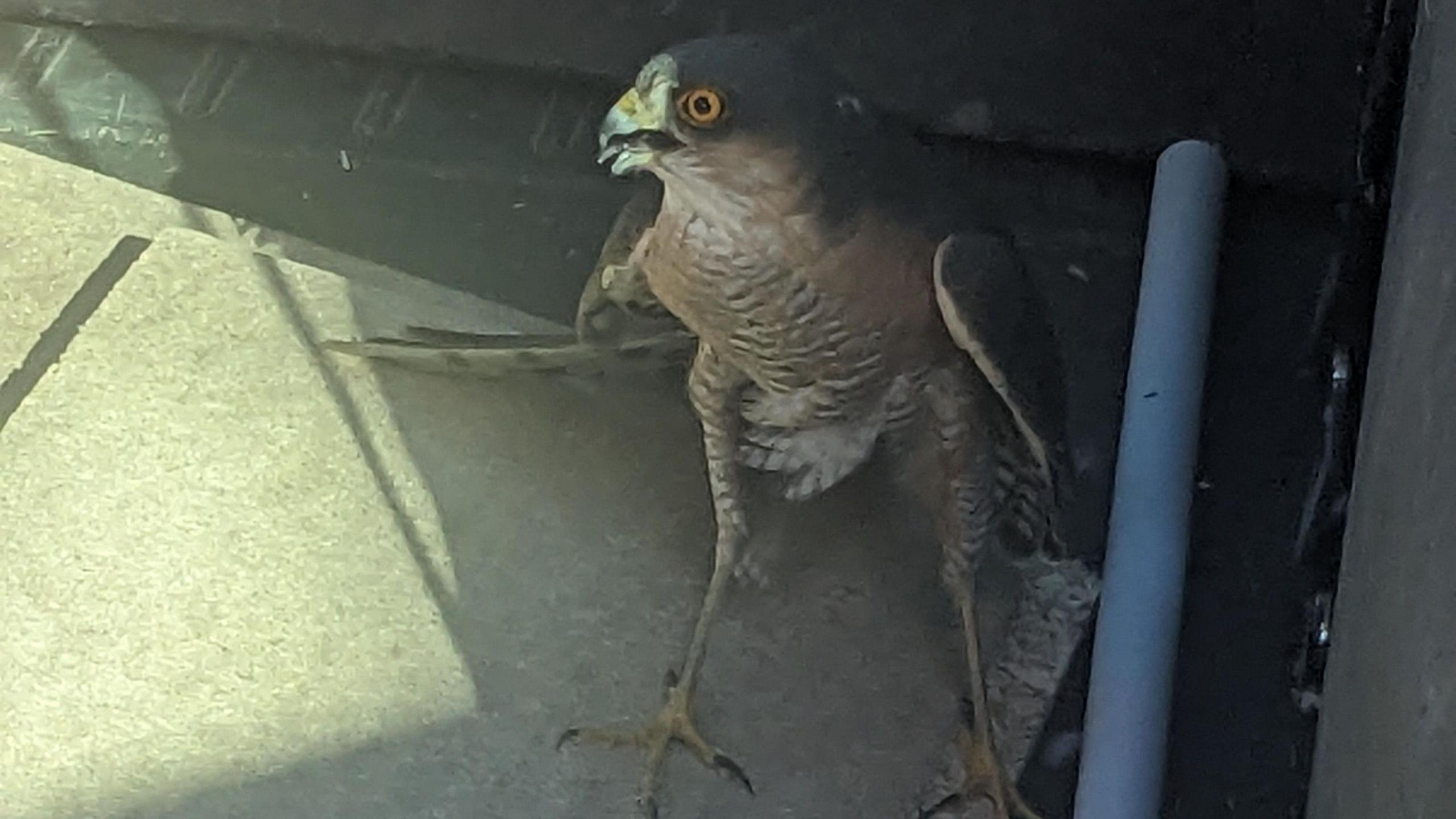
The sparrowhawk, believed to be male due to its "great yellow eyes" and colouring, flew in through an open window
- Published
A couple have shared memories of their "rare and unlikely" journey with a sparrowhawk after it flew into their car.
Richard and Helen Dodd, from Oxford, were driving past Bury Knowle Park in July when they heard "a sudden bang".
A few minutes later they realised there was "a young male sparrowhawk hopping around" at the back of the vehicle, they told BBC Radio Oxford.
Mrs Dodd said the bird had flown in through an open window while they had been driving at 30mph (48 km/h).
Mrs Dodd, who was in the front passenger seat at the time, said her husband, who was driving, had slowed down once they heard the thud.
"Nothing untoward was apparent and we assumed it was a small branch from an overhead tree," she said.
"When we turned left at the roundabout towards Oxford, we gathered speed to 50mph and wound up the windows to reduce traffic noise."
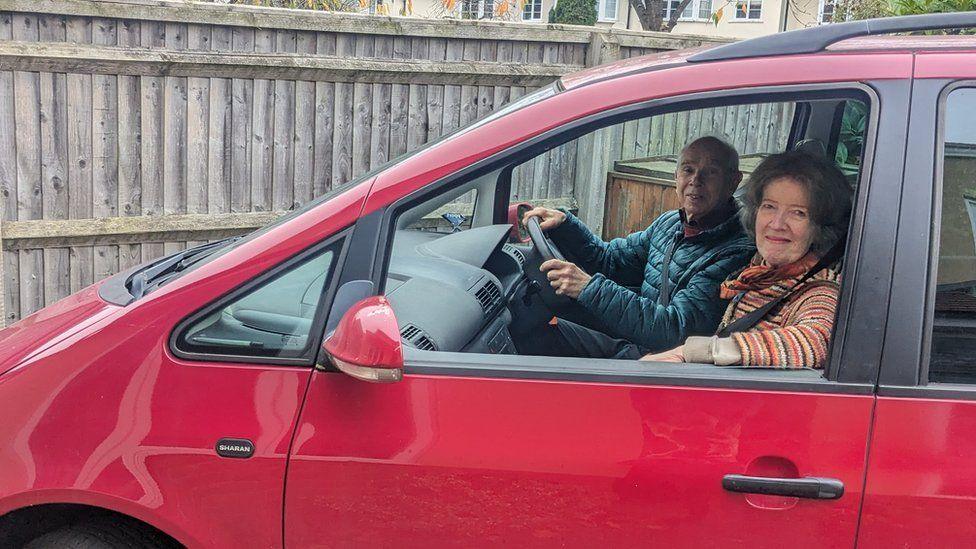
Richard and Helen Dodd were driving past Bury Knowle Park when they were joined by an unexpected passenger
It was at that moment they started to hear "a strange rustling in the back", she continued.
"We have a people carrier car, but... we had all the rear seats out to save fuel," she explained.
"I turned round and I couldn't believe my eyes - there was a sparrowhawk hopping around,
"After about two miles, we were able to pull in to open the car boot and he flew joyously away, apparently unharmed."
Mrs Dodd marvelled at the "precision of flight and eyesight to enable this bird to have flown over my head into the rear of the car".
Calling it "a miraculous event from nature", she said: "We shall always remember our extra special passenger."
'Classic sparrowhawk'
Chris Sperring MBE, conservation officer for the Hawk and Owl Trust, said he was "not at all surprised" that a sparrowhawk could get into a moving car.
"As their name suggests, they tend to feed on other birds that are normally smaller than themselves," he said.
He thought it was likely the bird was hunting and while chasing its prey, the car had happened to go by at the right time.
He described the move as "absolutely classic sparrowhawk".
"It can lift off from a slightly higher position, gain speed, fold up its wings, use its tail for steering and just weave in and out of the trees."
Mr Sperring said what happened to the Dodds was "unique".
"I celebrate the two people and their reaction to this because that was absolutely brilliant and the right thing to do."
But he said wildlife rehabilitation centres and vets should be contacted if people came across an injured bird.
Get in touch
Do you have a story BBC Oxfordshire should cover?
You can follow BBC Oxfordshire on Facebook, external, X (Twitter), external, or Instagram, external.
Related topics
- Published28 October 2024
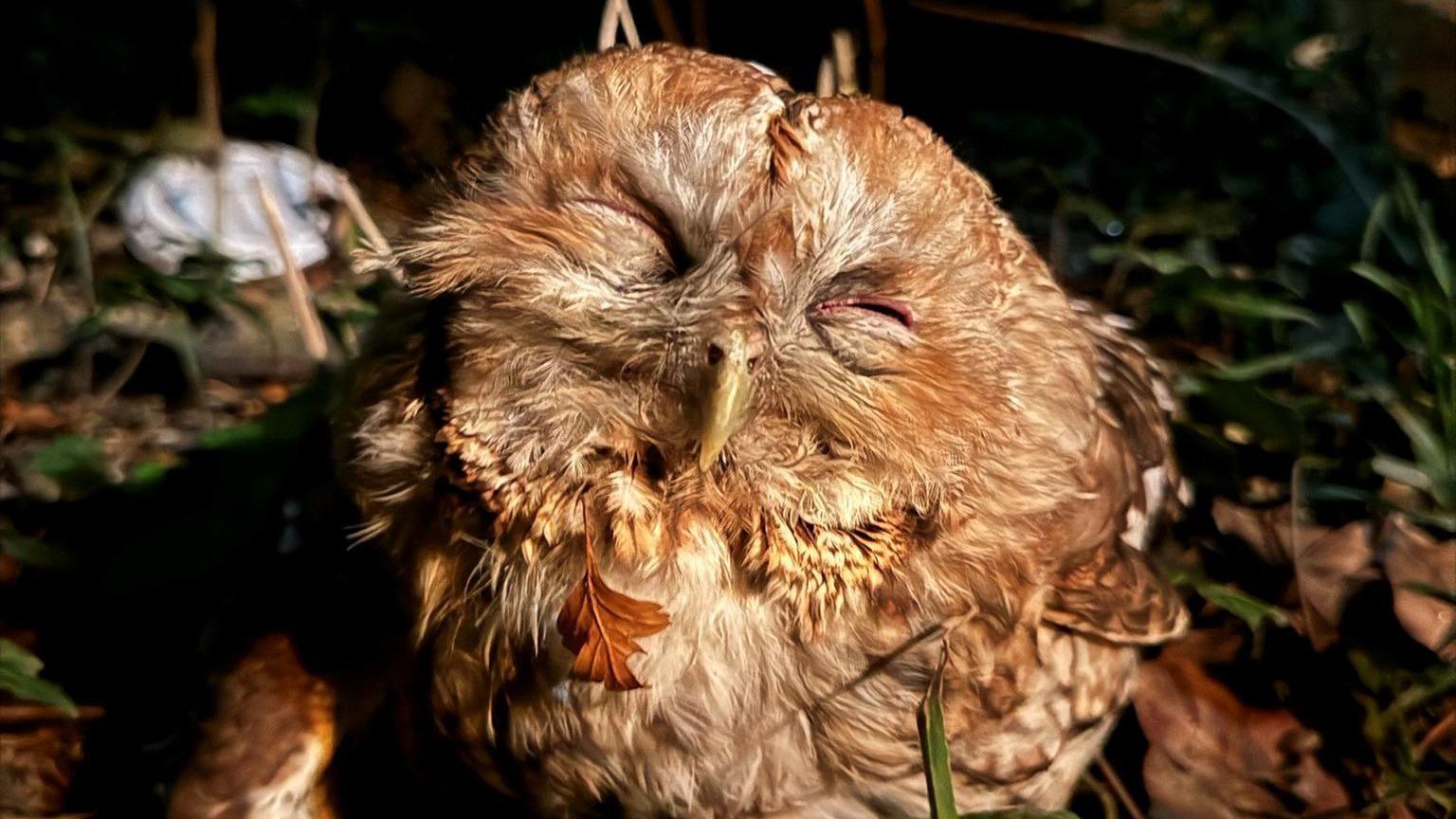
- Published18 May 2024
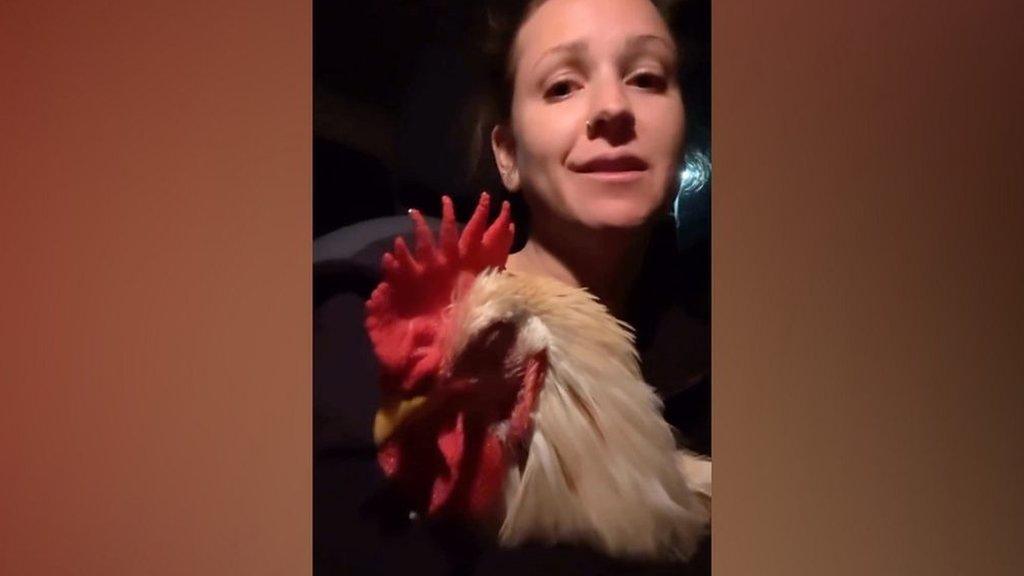
- Published16 March 2024
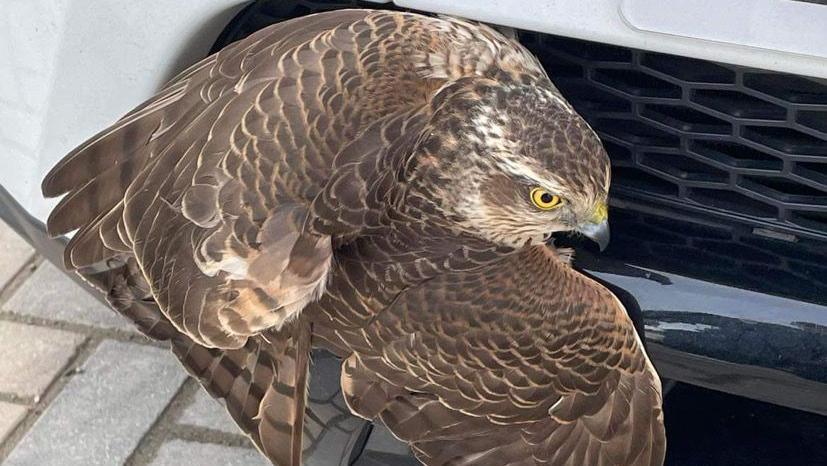
- Published8 August 2023
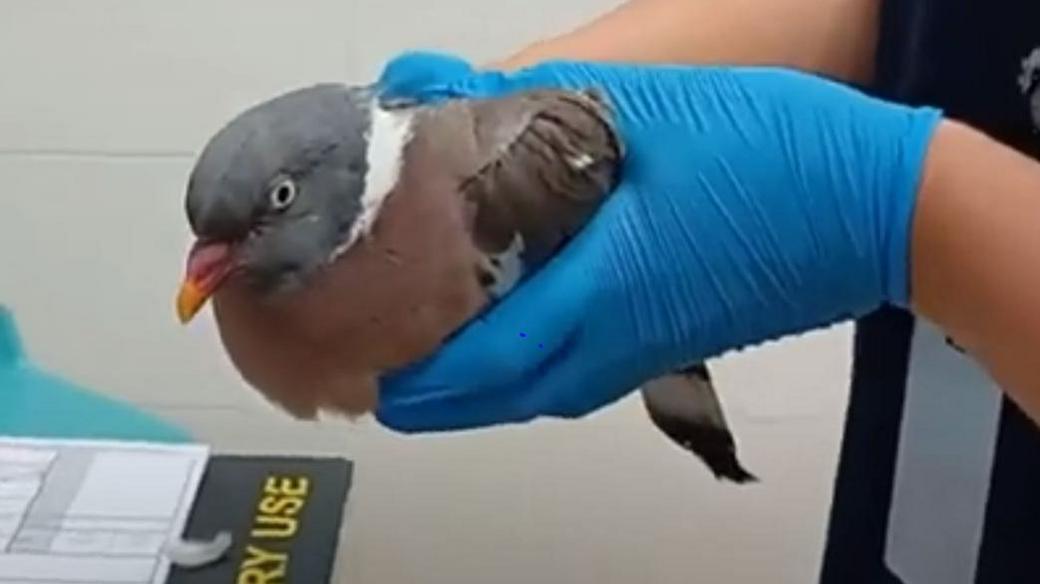
- Published18 May 2022
